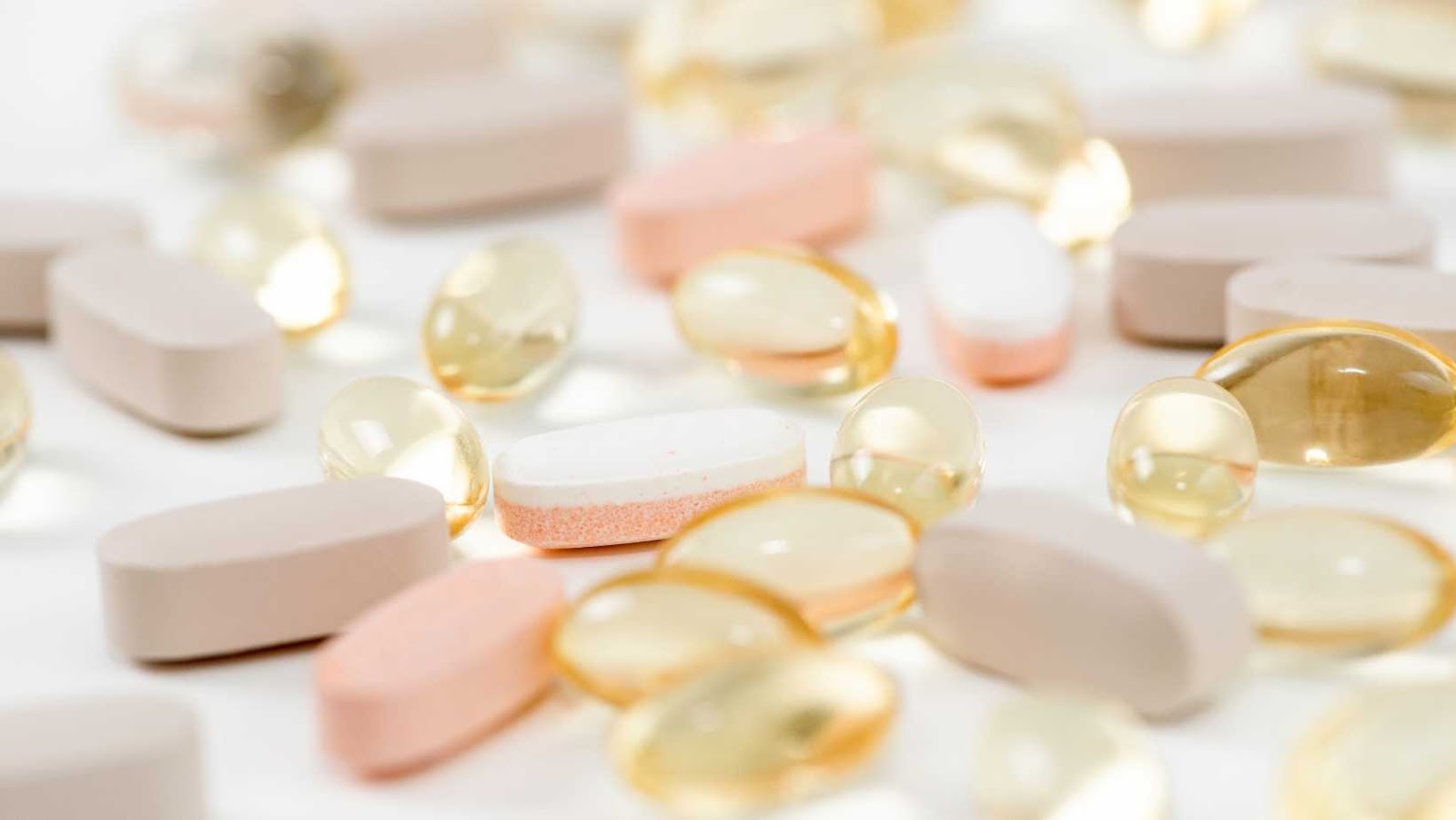Struggling to break through that weight loss plateau? You may have considered taking biotin supplements as a potential solution, but what should you know before doing so?
In this blog, we will explore the potential benefits, side effects and what you should bear in mind when considering taking biotin supplements.
Introduction
Biotin supplements have become increasingly popular in recent years for their potential benefits for skin, hair, and nail health. However, before taking biotin supplements, there are a few things you should know to ensure you are getting the most out of them. First and foremost, it is important to speak with your healthcare provider before starting biotin supplements, especially if you are pregnant, breastfeeding, or taking any medications or supplements. Regarding weight gain, there is limited scientific evidence that suggests biotin may contribute to weight gain, but further research is needed to support this claim. However, it is possible that this effect may occur indirectly, such as by improving metabolism and digestion, resulting in increased appetite and calorie intake.
It is also important to note that biotin supplements may interfere with certain lab tests, such as hormone and thyroid function tests, so be sure to inform your doctor if you are taking biotin supplements.
Overall, by speaking with your healthcare provider, following the recommended dosage, and monitoring any potential side effects, you can safely and effectively take biotin supplements.
What is Biotin?
Biotin, also known as vitamin H, is a water-soluble B-vitamin that is essential for converting food into energy and supporting healthy skin, hair, and nails. Before taking biotin supplements, it’s important to know that excessive biotin intake can interfere with certain laboratory tests and that there is no scientific evidence to support that biotin causes weight gain. While biotin is generally safe to take, it’s important to consult with a healthcare professional to determine the appropriate dosage for your individual needs. Additionally, individuals with a history of allergies, asthma, or skin conditions should be cautious when taking biotin supplements.
Pro Tip: Incorporating biotin-rich foods into your diet, such as eggs, nuts, and seeds, may be a more beneficial way to maintain healthy biotin levels than relying solely on supplements.

Benefits of Taking Biotin Supplements
Biotin is an essential B vitamin that plays a vital role in many bodily functions, including supporting healthy hair, skin, and nails, improving metabolism, and lowering cholesterol levels. Taking biotin supplements is generally safe and easy to do, but there are important considerations to keep in mind before starting.
Here’s what you should know before taking biotin supplements:
| Biotin dosage | Side effects | Weight gain |
| Biotin supplements are available in doses ranging from 5 mcg to 10,000 mcg. Most daily biotin supplements contain between 30-100 mcg, which is the recommended daily intake for adults. It’s best to start with a lower dose and gradually increase it as needed. | Biotin supplements are generally safe to take. Still, high doses of biotin may cause side effects such as acne breakout, upset stomach, and skin rash. | Biotin supplements do not cause weight gain. It is a water-soluble vitamin, which means that any excess biotin in the body is excreted in urine. |
In conclusion, taking biotin supplements has many benefits, including promoting healthy hair, skin, and nails, improving metabolism, and lowering cholesterol levels. While generally safe, it’s important to speak with a healthcare provider before beginning any new supplement regimen.
Risks And Side Effects of Biotin Supplements
Before taking biotin supplements, there are several risks and side effects you should be aware of. Although rare, some people may experience an allergic reaction to biotin supplements, which can cause symptoms such as hives, difficulty breathing, and swelling of the face, lips, tongue, or throat. Additionally, biotin supplements can interfere with certain lab test results, leading to false positives or false negatives. It’s essential to inform your healthcare provider that you are taking biotin supplements if you are undergoing lab tests. As for the question, “can biotin cause weight gain?,” there is no scientific evidence to support that claim. However, taking high doses of biotin supplements can lead to interference with thyroid lab tests, which can result in a misdiagnosis of thyroid issues. It’s important to consult your doctor before starting any new supplement and to follow the recommended dosage.
Pro tip: Always read the label of any supplement you plan on taking, be aware of the potential risks, and discuss any concerns with your healthcare provider.

Can Biotin Cause Weight Gain?
Biotin is a water-soluble vitamin that can have many benefits, such as promoting healthy hair, skin, and nails. It is also said to aid in weight loss, making it a popular supplement choice for many. However, there is no scientific evidence to support the claim that biotin causes weight loss or weight gain. The truth is, biotin is not a magic pill for weight loss or gain. Like any other vitamin supplement, it is important to take biotin in moderation and be aware of its potential side effects. Biotin is generally safe when taken in recommended doses, but high doses can lead to side effects such as acne, skin rash, and digestive issues.
As with any supplement or medication, it is recommended to consult with a healthcare provider before starting to take biotin supplements, especially if you have any pre-existing medical conditions or are taking other medications.
Recommended Dosage of Biotin Supplements
Before taking biotin supplements, it’s important to know the recommended dosage to avoid negative side effects such as weight gain.
| The recommended daily dosage of biotin supplements for adults is 30 to 100 micrograms. However, some experts suggest taking up to 500 micrograms daily to promote hair, skin, and nail health. |
It’s important to note that biotin supplements are generally safe when taken in recommended doses. However, taking high doses of biotin may cause falsely elevated thyroid test results, acne breakouts, and gastrointestinal distress.
To avoid negative side effects, be sure to follow the recommended dosage guidelines and talk to your doctor before starting any new supplement regimen.
Other Factors to Consider Before Taking Biotin Supplements
Before taking biotin supplements, it’s essential to consider some essential factors that may affect their efficacy and safety. While biotin is generally safe for most people, it’s crucial to discuss the following with your healthcare provider before adding to your diet:
| 1. Dosage: | Biotin’s recommended daily dosage is 2.5mg, and exceeding it may cause side effects. |
| 2. Medications and medical conditions: | Biotin supplements may interact with some medications, such as those for diabetes or cholesterol, and certain medical conditions, such as thyroid disorders or pregnancy. |
| 3. Allergies: | Some people may experience an allergic reaction to biotin supplements, such as hives, rash, or difficulty breathing. |
Overall, speaking to your healthcare provider is the best way to ensure biotin’s safe and effective use.
As for whether biotin causes weight gain, there is no scientific evidence to support this claim. However, weight gain is a possible side effect of some medications taken with biotin.
Conclusion
In conclusion, taking biotin supplements can be beneficial for healthy hair, skin, and nails. However, it is essential to know the recommended dosage and potential side effects before taking biotin. While biotin does not directly cause weight gain, it can interfere with the accuracy of some laboratory test results, leading to misdiagnosis and incorrect treatments. Additionally, biotin can interact with certain medications, such as those prescribed for seizures or high cholesterol. Before taking biotin supplements, consult with your doctor to determine if they are safe for you to take and for the recommended dosage. As with any supplement or medication, always follow the instructions and don’t take more than the recommended dosage.
Pro tip: Biotin is found naturally in foods such as eggs, nuts, and whole grains, and consuming these foods can help increase your biotin intake without the risk of over-supplementing.
